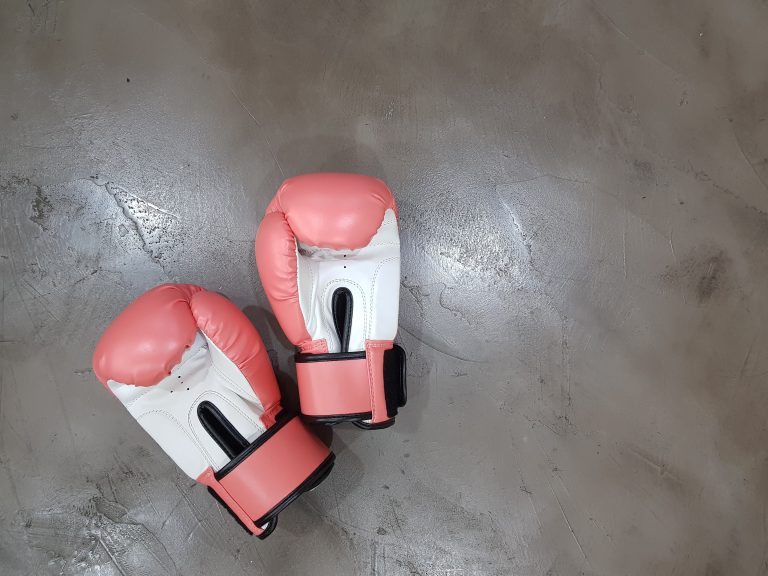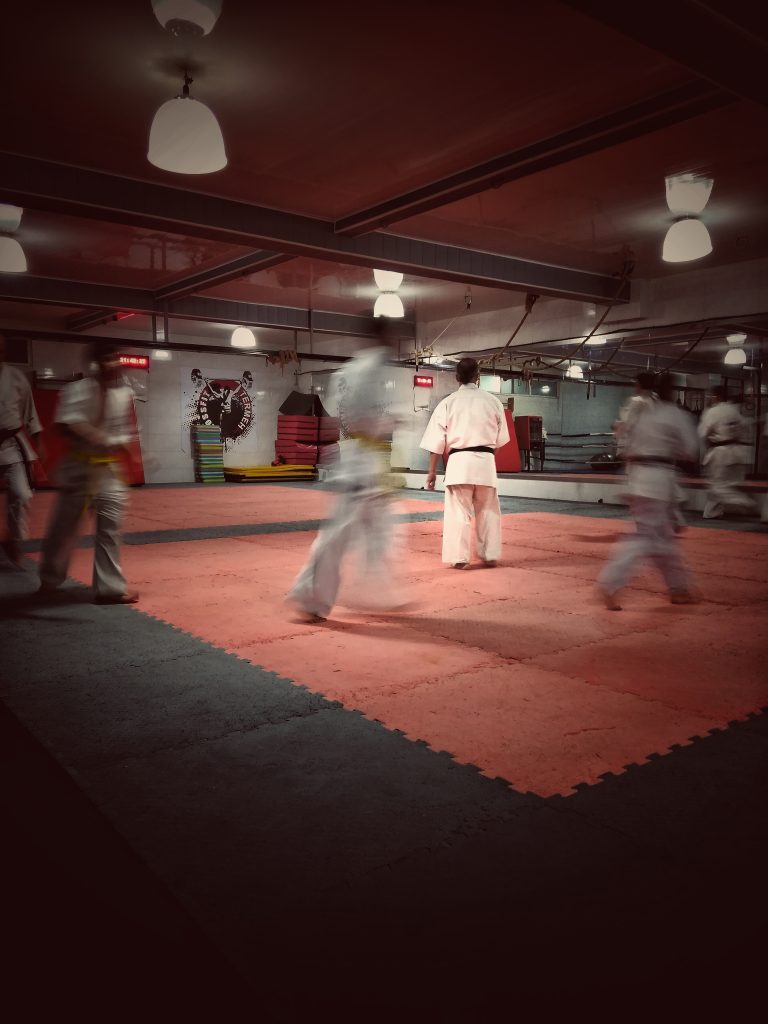How to Open a Karate School: A Comprehensive Guide
If you’re passionate about martial arts and have extensive experience in karate, opening a karate school might be a great career move. Not only can you make a living doing what you love, but you can also positively impact the lives of your students. However, starting a karate school takes careful planning, time, and investment, and there are multiple steps to consider. In this guide, we’ll discuss everything you need to know to open a successful karate school.
Step 1: Create a Business Plan
Before you start investing any money, it’s crucial to create a comprehensive business plan. This plan should include all the financial, legal, and operational aspects of running a karate school. It should also highlight your goals, target market, pricing, revenue streams, and marketing strategy. A well-thought-out business plan improves your chances of getting financing from lenders or investors and helps you stay on track throughout your journey.
Step 2: Choose a Location
Selecting a location for your karate school is a vital decision. You need to find a space that fits your budget, has appropriate zoning regulations, is accessible, and has ample parking space. The location should be in a safe neighborhood and easily accessible by public transport. Make sure to conduct thorough market research and assess the competition in the area before committing to a location.
Step 3: Register Your Business
Once you have your business plan and location, it’s time to register your karate school. Register your business as a Limited Liability Company (LLC) or a corporation to protect your personal assets from liability issues. Get a business license, tax identification number, and other necessary permits by visiting your local Small Business Administration (SBA) office.
Step 4: Develop a Curriculum
As a karate school owner, you’re responsible for creating a curriculum that aligns with your students‘ needs and goals. Develop a curriculum that includes the core fundamentals of karate, fitness training, and self-defense techniques. You can also include specialized classes such as weapons training, advanced sparring techniques, or martial arts history. Remember to be flexible and adjust your program to suit your students‘ interests and fitness levels.
Step 5: Equipment and Supplies
To run a successful karate school, you need proper equipment and supplies. The essential equipment includes mats or flooring, punching bags, kicking shields, and uniforms. You need to invest in quality supplies, including beginner belts, advanced belts, and awards for your students. You will also need to provide cleaning supplies and maintain the facilities regularly to ensure a hygienic and safe environment.
Step 6: Hire Qualified Instructors
Your karate school’s success depends on the quality of instructors you hire. You need to hire qualified and experienced instructors who are passionate about teaching and share your vision. Ensure that your instructors are certified by reputable organizations and have undergone thorough background checks. Conduct regular training programs and workshops to keep your instructors updated with the latest techniques and trends.
Step 7: Marketing and Promotion
Marketing and promotion are essential to attracting new students and retaining existing ones. Develop a strong marketing strategy that includes social media marketing, email campaigns, and targeted advertising. Offer free introductory classes, discounts, and promotions to attract new students. Create referrals and loyalty programs to encourage your current students to bring in their friends and family.
How to Open a Karate School: Answers to Frequently Asked Questions
What are the first steps in opening a karate school?
The first step is to research the market and the competition in your area. Look for areas that are underserved or have a high demand for martial arts schools. Next, create a business plan that includes a budget, a mission statement, and a marketing strategy. You should also obtain any required licenses or permits.
What credentials do I need to open a karate school?
Most states require martial arts instructors to have a black belt or equivalent degree from a recognized organization. It’s also helpful to have experience teaching martial arts or running a small business. You may also want to become certified in CPR and first aid.
How do I find a good location for my karate school?
Look for a location that is easily accessible, visible, and has plenty of parking. Check with local zoning laws and regulations to make sure the location is compliant. You should also choose a location with a good reputation and low crime rate if possible.
What equipment do I need for a karate school?
You’ll need a well-ventilated space with enough room for students to train safely. You’ll also need mats or flooring, mirrors, and a sound system. Other equipment may include punching bags, weights, and training equipment such as shields and focus mitts.
How much money do I need to open a karate school?
The cost of opening a karate school can vary greatly depending on the location, size, and level of equipment. You should create a detailed budget that includes rent, utilities, equipment, promotional materials, and instructor salaries. You may also want to secure a loan or seek investors to help finance your business.
What types of classes should I offer?
It’s important to offer a range of classes that cater to different ages and skill levels. This might include children’s classes, beginner classes, and advanced classes. You may also want to offer specialized classes such as self-defense, weapons training, or meditation.
How do I attract and retain students?
Marketing is key to attracting new students. You can use social media, local advertising, and promotions to build awareness of your school. It’s also important to provide excellent customer service and create a welcoming environment to keep students coming back. You may also want to consider offering discounts or referral incentives to help incentivize students to bring their friends and family.
What are the biggest challenges in running a karate school?
One of the biggest challenges is balancing the demands of running a business with teaching martial arts. You’ll also need to manage your time effectively to ensure that you have enough time for both administrative tasks and teaching. Finally, it can be difficult to retain students in the long term, so it’s important to continually innovate and improve your course offerings.
What are some common mistakes to avoid when opening a karate school?
Common mistakes include underestimating the costs of starting a business, overspending on equipment, and failing to research the market in your area. It’s also important to avoid rushing to open before you are fully prepared. Finally, it’s crucial to avoid compromising on the quality of instruction or the safety of your students.
What resources are available for starting a martial arts school?
There are many resources available for those looking to start a martial arts school. Industry associations, mentorship programs, and trade shows can provide valuable information and networking opportunities. You may also want to consider working with a business consultant or mentor to help guide you through the process of starting your own martial arts school.
Do I need insurance for my karate school?
Yes, it is essential to have liability insurance for your karate school. This will protect you in the event of an accident or injury. You may also want to consider insurance for your equipment and property.
What legal considerations do I need to take into account when starting a karate school?
It’s important to have a solid understanding of the legal issues involved in starting a martial arts school. This might include obtaining business licenses and permits, adhering to zoning laws, drafting contracts, and protecting your intellectual property. It’s a good idea to consult with a lawyer who has experience in business and martial arts law to ensure that you are compliant with all relevant regulations and laws.
What are the benefits of opening a karate school?
Opening a karate school can be a rewarding and fulfilling way to share your passion for martial arts with others. It also allows you to work for yourself and build a business that aligns with your personal values and interests. Finally, teaching martial arts can help you build strong relationships with your students and create a sense of community.
How to Open a Karate School: A Step-by-Step Guide
Are you a certified karate instructor who wants to share your passion for martial arts with others? Do you want to start your own karate school to teach students of all ages and skill levels? If you answered yes to these questions, then this guide is for you! In this article, we’ll provide a step-by-step guide on how to open a karate school, from planning and financing to marketing and operations.
Step 1: Develop a Business Plan
Before you start your karate school, you need to develop a business plan that outlines your goals, funding needs, target market, and competition. Here’s what you need to include in your business plan:
Goals:
What are your goals for your karate school? Do you want to create a family-friendly environment that welcomes students of all ages, or do you want to focus on training competitive athletes?
Funding Needs:
How much money will you need to start your karate school? Will you be able to finance it yourself, or will you need to seek outside funding?
Target Market:
Who are your ideal customers? Are you targeting children, adults, or both? What are their pain points, and how does your school address them?
Competition:
Who are your local competitors, and what makes your school unique? What do they offer that you don’t, and vice versa?
Step 2: Secure Financing
Once you’ve developed your business plan, you need to secure financing to start your karate school. Here are some common financing options:
Savings:
If you have savings or investments, you may be able to self-finance your school.
Loans:
You can also apply for small business loans from banks or credit unions.
Investors:
If you have friends or family members who are interested in your school, you may be able to secure funding from them.
Step 3: Find a Location
The next step is to find a location for your karate school. Here are some factors to consider:
Accessibility:
Is the location convenient for your target market? Is it easily accessible by public transportation or by car?
Size:
Is the space large enough to accommodate your classes? Do you have room for storage and equipment?
Cost:
Can you afford the rent, utilities, and other ongoing expenses associated with the location?
Step 4: Obtain Licenses and Permits
Before you can open your karate school, you need to obtain the necessary licenses and permits. Here are some common ones:
Zoning Permit:
In some areas, you’ll need a zoning permit to operate your karate school.
Business License:
You’ll need a business license from your state or local government.
Insurance:
You’ll need liability insurance to protect you and your students.
Step 5: Purchase Equipment
Now that you have a location and permits, it’s time to purchase equipment for your karate school. Here’s what you’ll need:
Mats:
You’ll need high-quality mats to provide a safe training environment.
Targets and Shields:
Targets and shields will help your students improve their technique and accuracy.
Uniforms:
Uniforms will create a sense of unity and professionalism among your students.
Step 6: Hire Instructors
If you’re the only instructor at your karate school, you’ll quickly burn out and be unable to grow. Hiring additional instructors can help you expand your offerings and reach more students.
Certification:
Make sure that all of your instructors are certified and have the necessary experience to teach karate.
Compensation:
Decide on fair compensation for your instructors. You can pay them a salary or based on the number of students they teach.
Step 7: Market Your Karate School
Finally, it’s time to market your karate school to potential students. Here are some marketing tactics to try:
Online Marketing:
Create a website and social media accounts for your school. Use search engine optimization (SEO) to attract online traffic.
Referrals:
Encourage your students to refer their friends and family.
Events:
Host events and open houses to attract new students.
Conclusion
Starting your own karate school can be a challenging but rewarding experience. With careful planning, financing, and marketing, you can create a successful school that helps students grow and achieve their goals. Follow these seven steps to open your own karate school and become a successful entrepreneur in the martial arts industry.
Inhaltsverzeichnis






